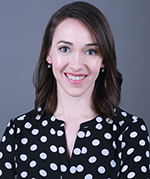The course materials below are prepared for courses at Lehman College. The assignments below are property of Katherine Gardner Burt, PhD, RDN. For permission to use these materials, please use Katherine.Burt@lehman.cuny.edu.
Ethnic and Therapeutic Meal Patterns (DFN 621): An in-depth exploration of foods and foodways of diverse populations and cultures. Examination of the effect of ethnic, geographic, ecological and historical factors on foods, foodways, health and diet related diseases.
Approach: a note to students
By understanding the role of culture in food, you will gain insight into diet-related concerns, what people eat, and why they eat it. Understanding the context requires complex, critical thinking. You must understand and hold social, economic, political, and historical environments to understand food choice and the particular role of culture in food. These shape our choices, our food values, how we view other people’s food, and the development of food systems.
Ultimately, this course aims to:
- Introduce you to new foods, ingredients, or preparation methods
- Promote an understanding of your own culture
- Promote an understanding of the foods, social, political, and historical context of cultures different than your own
- Facilitate discussion about appropriate food and nutrition-related care and education
The readings and videos will expose you to new ideas and unfamiliar realities; writing will enable you to analyze and critique what you read; class participation and group activities will hone your speaking and collaboration skills. We will spend a significant part of class time in discussion, so be prepared to contribute by sharing your thoughts and questions based on the readings. Just as important, participating will open you up to differing perspectives and conflicting yet co-existing truths. Preparation and participation are essential!
What is critical reflection?
Critical reflection is something you will do throughout your time in this course. On the first days of class, you will be introduced to the process of reflecting critically through an exercise and in class discussion. The process of critical reflection includes three phases:
(1) identifying the ideologies and assumptions that underlie our thoughts and actions;
(2) scrutinizing the accuracy and validity of these in terms of how they connect to, or are discrepant with, our experience of reality; and
(3) reconstructing these assumptions to make them more inclusive and integrative (Norris 2014).
Recognition and analysis of ideological assumptions are central to the process of critical reflection (Norris 2014). Ideologies can be defined as the enduring sense that a person has of ones’ identity, such as gender, sexual orientation, ethnicity and class (Lee et al. 2007), and comprises of those taken for granted ideas, commonsense beliefs and self-evident “rules” that inform our thoughts and actions (Norris 2014).
Syllabus & Assignments
Sample syllabus from fall 2022
Discussion Questions Expectations & Grading Rubric
In person Lab Reports & Grading Rubric
Critical Consciousness Assignment & Grading Rubric

 Kate Gardner Burt, PhD, RD is an assistant professor at Lehman College and a registered dietitian and culinary nutritionist. She teaches courses in community and public health nutrition and cultural food and sustainability. Dr. Burt’s research broadly aims to reduce racial and ethnic inequities in community food systems in the Bronx and NYC as a whole. She does this by exploring strategies to strengthen efforts to grow food locally and improve community cohesion and social connectedness to build a more just food system. She also aims to reduce inequities in food systems by increasing opportunities for low-income people of color to excel in dietetics and food-focused careers. She takes a mixed methods, community-based approach to research and currently works with several New York City based non-profit organizations. Dr. Burt received her BS in film and television from Boston University and her MS in exercise physiology and nutrition, RD and PhD in food and nutrition policy from Teachers College, Columbia University. Her first cookbook was published in 2015 by Sterling Publishers, a subsidiary of Barnes and Noble.
Kate Gardner Burt, PhD, RD is an assistant professor at Lehman College and a registered dietitian and culinary nutritionist. She teaches courses in community and public health nutrition and cultural food and sustainability. Dr. Burt’s research broadly aims to reduce racial and ethnic inequities in community food systems in the Bronx and NYC as a whole. She does this by exploring strategies to strengthen efforts to grow food locally and improve community cohesion and social connectedness to build a more just food system. She also aims to reduce inequities in food systems by increasing opportunities for low-income people of color to excel in dietetics and food-focused careers. She takes a mixed methods, community-based approach to research and currently works with several New York City based non-profit organizations. Dr. Burt received her BS in film and television from Boston University and her MS in exercise physiology and nutrition, RD and PhD in food and nutrition policy from Teachers College, Columbia University. Her first cookbook was published in 2015 by Sterling Publishers, a subsidiary of Barnes and Noble.
